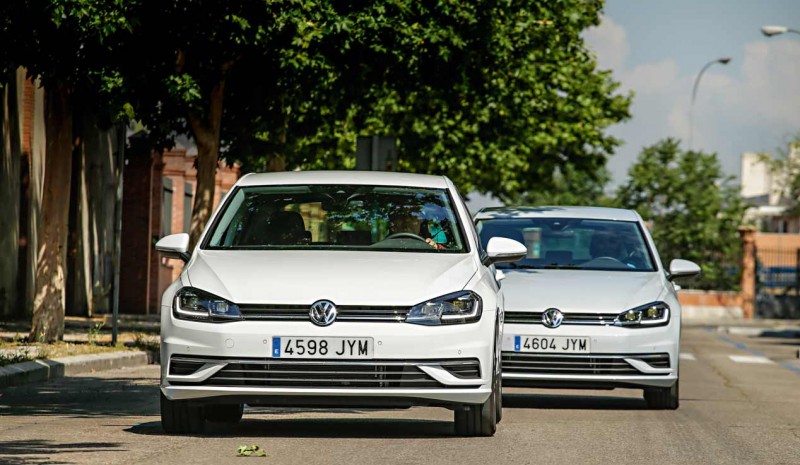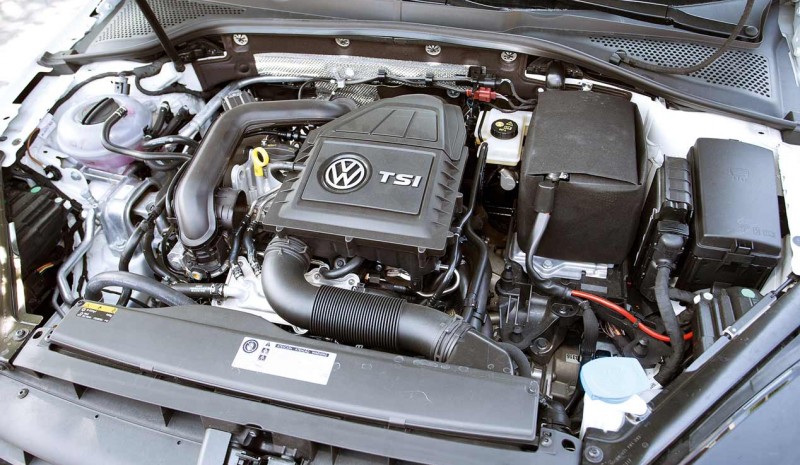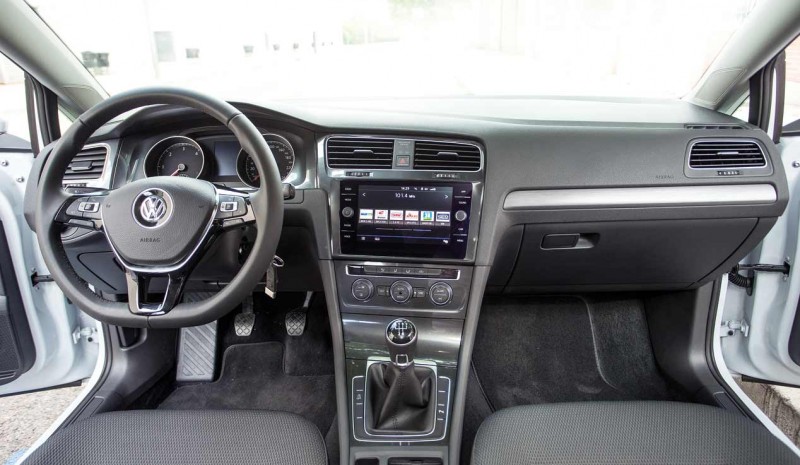Volkswagen Golf 1.6 TDI vs Golf 1.0 TSI. ¿Diesel or gasoline?
¿Volkswagen Golf VW Golf Diesel or petrol? We analyze which option is more interested in one of the most popular both in Spain and Europe cars.
The Volkswagen Golf offers two versions, with a such power, They compete against each other: those with the 1.0 TSI petrol engine 110 hp and those with the Diesel 1.6 TDI 115 hp.
Of the VW Golf 1.0 TSI with three-cylinder engine, there are six versions of models of different brands of the Volkswagen consortium, depending on the type of power and electronic adjustments, have between 60 and 115 CV. In different brand models -the exception almost all put the 95 hp, the Seat Ibiza exclusive and Audi A1 are used and the Golf exclusively of 115, in Sportsvan and 110 hp, three and five-door also family. Between the two there is no more difference than the rated power of each achieved the same regime.
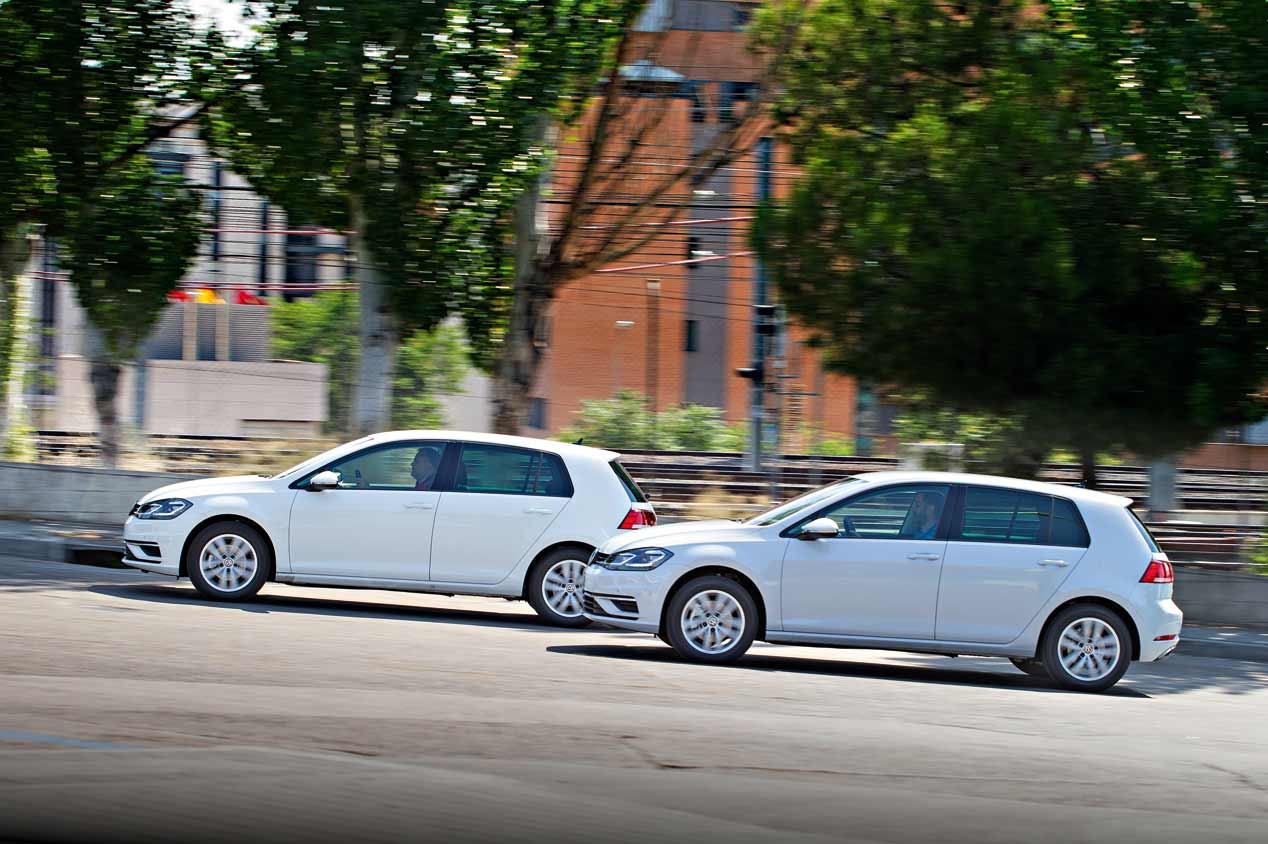
| BENEFITS | VW Golf 1.6 TDI 115 hp Advance | VW Golf 1.0 TSI 110 hp Advance |
| Acel. 0-100 km / h | 9.98 s | 10.16 s |
| Acel. 0-1000 meters | 31.67 s | 32.69 s |
| Overtaking 80-120 km / h in 4th | 8.45 s | 7,97 s |
| Loudness 100 km / h | 66.1 dB | 64.4 dB |
| Loudness 120 km / h | 69.2 dB | 67.8 dB |
| Braking from 140 km / h | 73,99 m | 79.28 m |
| Weight scale | 1,320 kg | 1,240 kg |
VW Golf 1.0 TSI and 1.6 TDI VW Golf: its technical innards
With both engines, 1.0 TSI and this Diesel 1.6L, the two supercharged with Turbo and two cylinder heads, with variable valve timing multivalve for admission to the Diesel exhaust also for the direct injection of gasoline or as common points, the basic power step of Golf range is constructed.
Technologically, the small three-cylinder is more complex than Diesel, with integrated exhaust manifolds, three distinct cooling circuits for the block-two, one for the intercooler, for both the 1.6 TDI -, oil pump variable flow mass damper … also its turbo has a valve electric discharge helps sitting progressive: the 1.6 TDI is electropneumatic thus for the pressure on the turbine blades adjust the variable geometry of the blades are used. Interestingly, and even more in the case of tricilíndrico, neither uses balanced trees.
| CONSUMPTION | VW Golf 1.6 TDI 115 hp Advance | VW Golf 1.0 TSI 110 hp Advance |
| Consumption city | 6,1 l / 100 km | 6.5 l / 100 km |
| Consumption Highway | 5 l / 100 km | 5 l / 100 km |
| average consumption | 5,5 l / 100 km | 5,6 l / 100 km |
VW Golf 1.0 TSI and 1.6 TDI VW Golf: performance
He thrust of the two engines follow very similar paths, but with a more punchy turbodiesel engine at all times. Is more progressive increase torque representing the entry into action of the turbo at low speeds in the 1.0 TSI because the difference thrust is not as great as in the 1.6 TDI, which this element marks further “life” the motor.
It is not this one Diesel timorous when moving at high speeds and in fact, solvency exceeds 4,000 rpm and even successfully overcome it at the gates of the 4,500 laps, where it is “just.”
Something similar happens with the 1.0 TSI, an engine between 1,800 and 6,000 rpm also- maintains constant throttle response, so it is stretchy, no abrupt torque alluvium and consequently pleasant; even greater extent than diesel because its ability to achieve a higher rate is higher.
Another aspect to consider is how change affects the driveability, so that only five gears and a fifth long development in the Diesel is necessary to open a lot of intermediate relationships. Thus, heeding the signs of the time of the change, We feel that the gap between second and third of the 1.6 TDI is more evident.
| SPACE | VW Golf 1.6 TDI 115 hp Advance | VW Golf 1.0 TSI 110 hp Advance |
| front width | 142 cm | 142 cm |
| rear width | 135 cm | 135 cm |
| front height | 91-98 cm | 91-98 cm |
| rear height | 96 cm | 96 cm |
| Legroom | 75 cm | 75 cm |
| Trunk | 305 liters | 305 liters |
VW Golf 1.0 TSI and 1.6 TDI VW Golf: a question of details
The details define the differences between one another provision, just as occurs with consumption. Go ahead, if we follow that we have verified, hardly can, for example, amortize the extra cost of the Diesel version compared to gasoline 2,900 euros to the same level of equipment, Advance– based road kilometers; while in town, however much the TDI spend less, the kilometric requirement is also superlative given the small difference between the two: It should be done almost 257,000 km for the Diesel come out on account.
But, as we say, details matter and the key is when it comes to standardized driving rhythms and quiet because then 1.0 TSI consumption increases more significantly than the 1.6 TDI, values that even exceed 40 percent. So, if you is going to make a really quick, eye to this issue driving.
Similarly we find differences of nuance in the dynamic behavior. No, of course, on aspects such as driveability, progressive or poise that characterized the attitude of this generation and all the Golf, but rather in the different roughness in the tread that perceive higher in the TSI TDI, much as it also feels firm.
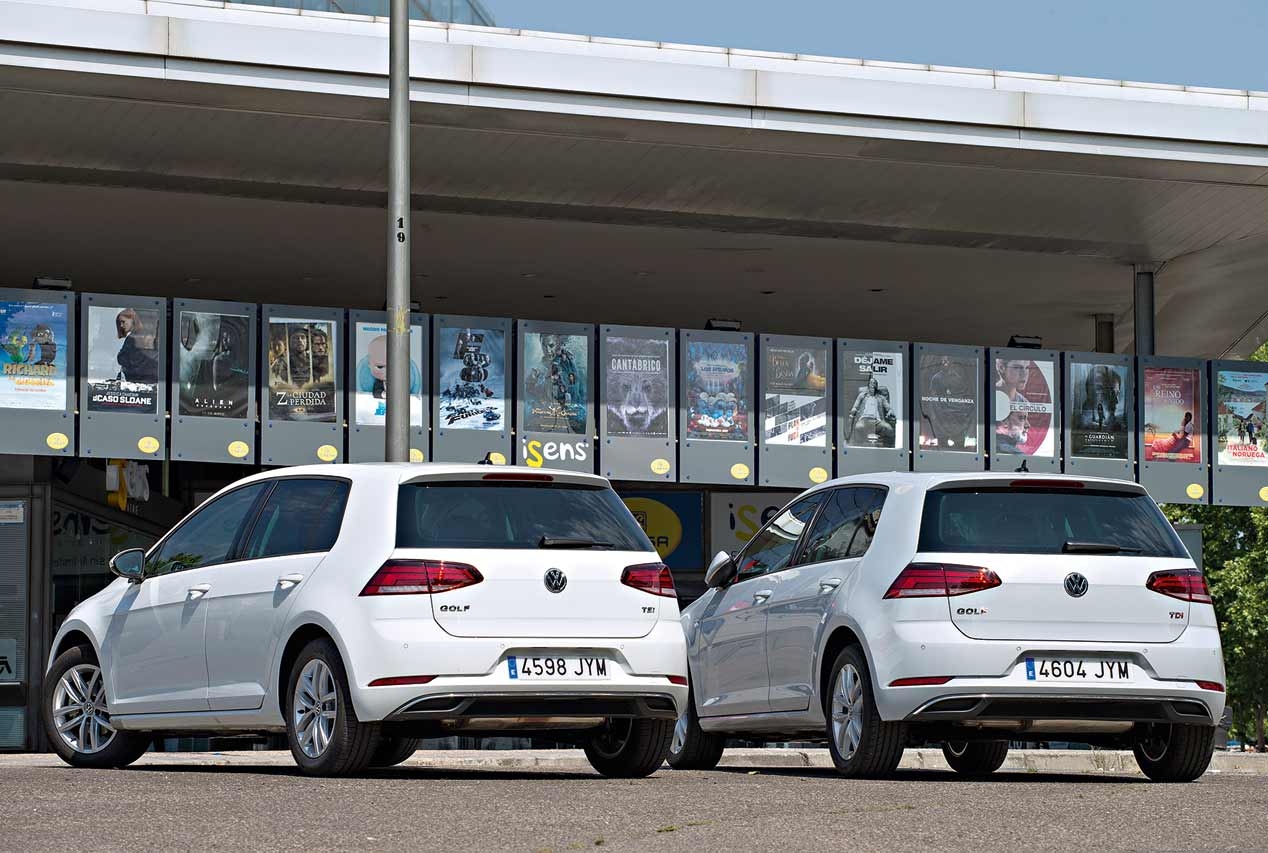
VW Golf 1.0 TSI and 1.6 TDI VW Golf: our choice
Only if you’re going to make a continuous agile handling the Diesel You can compensate for consumption when you are required, it triggers less than gasoline; for everything else, it becomes difficult to choose it against the deployment of details and nuances that bring many tangible benefits to 1.0 TSI. Including awareness of a lower environmental impact and, presumably, maintenance costs and minor damage to the 1.0 TSI.

